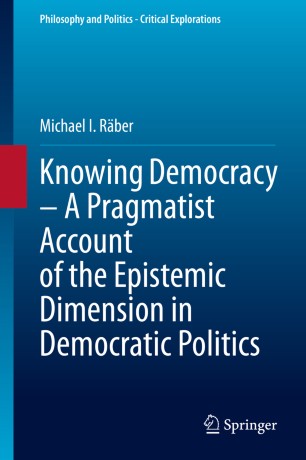Knowing Democracy – A Pragmatist Account of the Epistemic Dimension in Democratic Politics Michael I. Räber 9783030532574, 3030532577
$50.00 Original price was: $50.00.$25.00Current price is: $25.00.
Knowing Democracy – A Pragmatist Account of the Epistemic Dimension in Democratic Politics Michael I. Räber – Ebook Instant Download/Delivery ISBN(s): 9783030532574, 3030532577
Product details:
- ISBN-10 : 3030532607
- ISBN-13 : 978-3030532604
- Author: Räber
How can we justify democracy’s trust in the political judgments of ordinary people? In Knowing Democracy, Michael Räber situates this question between two dominant alternative paradigms of thinking about the reflective qualities of democratic life: on the one hand, recent epistemic theories of democracy, which are based on the assumption that political participation promotes truth, and, on the other hand, theories of political judgment that are indebted to Hannah Arendt’s aesthetic conception of political judgment. By foregrounding the concept of political judgment in democracies, the book shows that a democratic theory of political judgments based on John Dewey’s pragmatism can navigate the shortcomings of both these paradigms. While epistemic theories are overly and narrowly rationalistic and Arendtian theories are overly aesthetic, the neo-Deweyan conception of political judgment proposed in this book suggests a third path that combines the rationalist and the aesthetic elements of political conduct in a way that goes beyond a merely epistemic or a merely aesthetic conception of political judgment in democracy. The justification for democracy’s trust in ordinary people’s political judgments, Räber argues, resides in an egalitarian conception of democratic inquiry that blends the epistemic and the aesthetic aspects of the making of political judgments.
Table of contents:
1. Introduction: How to Justify Democracy’s Trust in the Political Judgments of Ordinary People
Part I. A Pragmatist Theory of Democratic Political Judgment
2. Democracy, Epistemology and Deweyan Pragmatism
3. A Pragmatist Theory of Judgment
4. Political Judgments and Political Inquiry: Arendt and Dewey
5. Judgments, Juries and the Political Sphere
6. Dewey’s Epistemic Argument for Democracy Reconsidered
Part II. Pragmatist Political Judgment and the Circumstances of Democratic Politics
7. The Epistemic Value of Diversity in Democratic Publics
8. Diversity, Democratic Systems and Epistemic Quality
9. Which Types of Knower Should Democracies Include and Why?
People also search:
knowledge democratization
democracy known for
important things to know about democracy
what do we know about democracy
knowing darkness
You may also like…
Politics & Philosophy - Social Sciences
Authoritarianism and the Elite Origins of Democracy Michael Albertus
Politics & Philosophy - Anthropology
Politics & Philosophy - Social Sciences
Analyzing American Democracy Politics and Political Science Jon R. Bond
Politics & Philosophy - General & Miscellaneous Philosophy
Politics & Philosophy
Epistemic Democracy and Political Legitimacy 1st edition by Ivan Cerovac 3030446024 9783030446024
Politics & Philosophy - Social Sciences
Living under Post Democracy Citizenship in Fleetingly Democratic Times 1st Edition Caleb R Miller
Politics & Philosophy
Politics & Philosophy
Authoritarianism And The Elite Origins Of Democracy Michael Albertus













